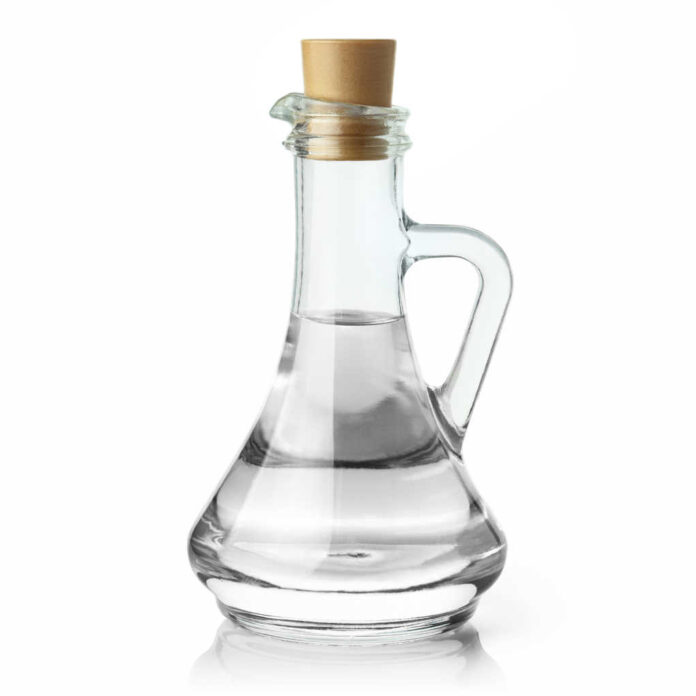
Vinegar is an everyday kitchen staple.
Many people use vinegar to clean countertops, sinks, and windows more than just for cooking.
But is vinegar actually a good cleaning solution?
Vinegar is Not a Disinfectant
There’s an important difference between cleaners and disinfectants.
- Cleaning solutions remove dirt, grime, and other debris from surfaces.
- Disinfectants kill bacteria, viruses, and other germs.
White distilled vinegar can be a great cleaner, but it is not a disinfectant.
According to the Environmental Protection Agency (EPA) standards, a disinfectant must be able to kill 99.9% of germs in 10 minutes or less.
Vinegar does not meet this qualification.
Vinegar and Germs
Although vinegar is not a disinfectant, it may sometimes be effective at killing a few types of bacteria.
The primary active ingredient in vinegar is acetic acid, a weak organic acid. Acetic acid is not strong enough to kill most bacteria in the concentrations found in vinegar (typically 5-8%).
In higher concentrations of acetic acid (10+%), and when combined with 1.5% citric acid, vinegar may be able to eliminate or reduce bacteria such as:
- E. coli
- Salmonella
- S. aureus
- L. monocytogenes
These germs are common causes of foodborne illnesses.
Higher concentrations of acetic acid may also effectively eliminate some types of influenza, though commonly available vinegar solutions are likely not strong enough for this purpose.
EPA Approved Disinfectants
If you are looking for a product that can effectively kill germs, the EPA has a comprehensive list of products that meet their criteria for use as antimicrobial disinfectants.
These products typically contain ingredients such as:
- ethanol
- isopropyl alcohol
- hydrogen peroxide
- sodium hypochlorite (bleach)
- quaternary ammonium
- phenolic compounds
Vinegar and its main ingredient, acetic acid, are not on this list.
Cleaning with Vinegar
While vinegar is not an EPA-approved disinfectant, it can still be used to clean dirt, dust, grime, and other debris from surfaces.
The acidity may damage some types of surfaces. Do not use vinegar on:
- aluminum
- cast iron
- finished wood
- granite
- marble
- soapstone
Always test vinegar in a small area first to avoid damaging your surfaces if you are not sure.
Never mix vinegar with bleach. This will produce dangerous and potentially deadly chlorine gas.
To create a helpful all-purpose cleaner, mix 1/2 cup of white distilled vinegar with 2 cups of water in a spray bottle. You can also add a few drops of essential oil to reduce the vinegar smell and create a more pleasant scent.
This solution can be helpful for cleaning up dirty surfaces, but if you need to sanitize or disinfect, use a different EPA-approved product.






















